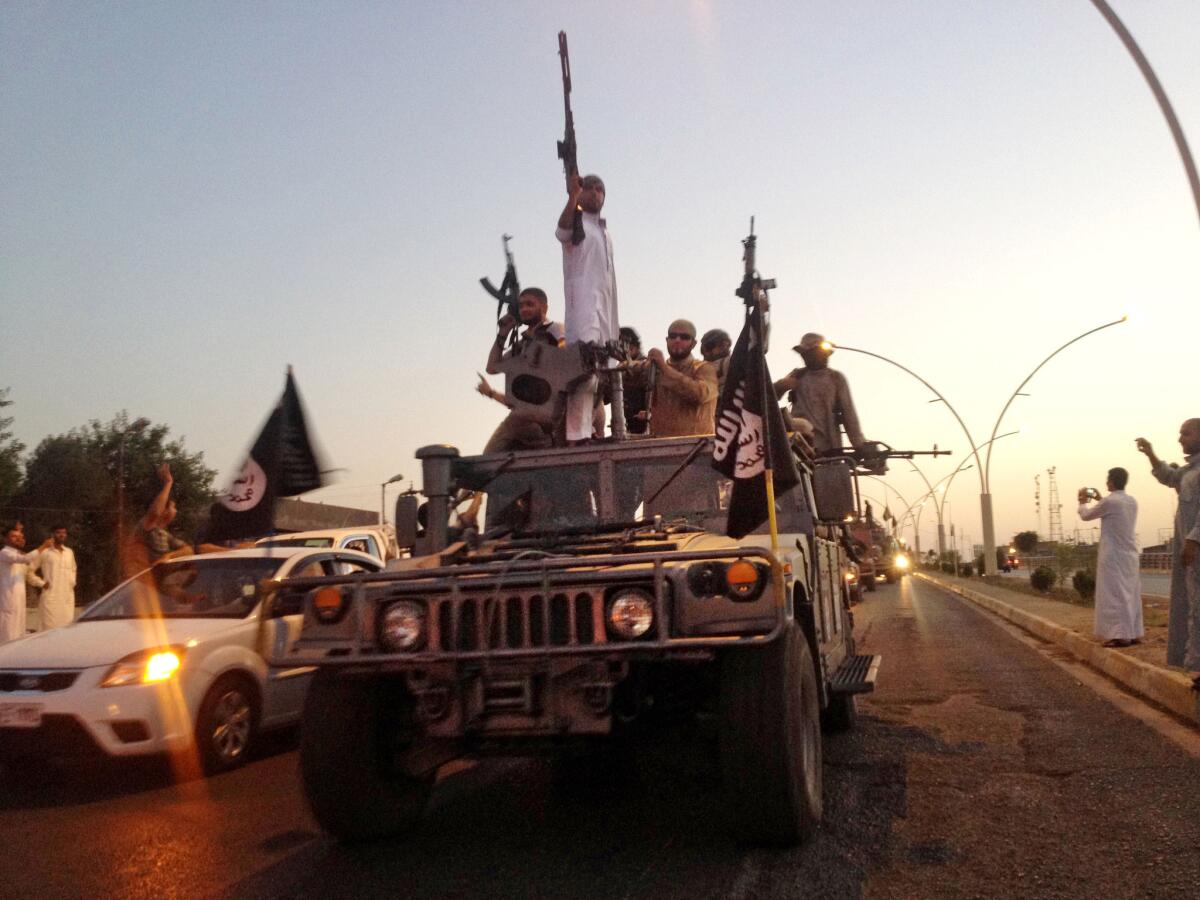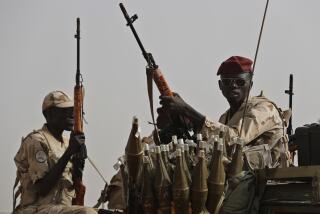Islamic State executes scores of fellow Sunni Muslims

- Share via
Reporting from Amman, Jordan — Islamic State forces have carried out another mass killing of civilians in western Iraq, officials said Saturday – the systematic executions of at least 50 fellow Sunni Muslim men and women belonging to a tribe that has defied the extremist militants.
Amid a months-long onslaught by the Islamic State, Iraq is growing ever more violent. The United Nations mission in Baghdad reported Saturday that at least 1,273 Iraqis had been killed in October, about two-thirds of them civilians.
In the latest grisly episode, members of the Albu Nimr tribe were lined up by the militants and shot dead late Friday in the village of Ras al-Maaa, in Anbar province, according to Naim Al-Kaood, an Albu Nimr tribal leader. He spoke to the Iraqi broadcaster Al-Sumariyah.
Social media websites were flooded with pictures of the dead, their blood seeping out onto the pavement from apparent close-range shots to the head.
“They [the Islamic State] are now surrounding 200 others, including women and children,” Kood told the station. He also accused a number of leaders of other Anbar tribes of colluding with the Islamic State in perpetrating the massacre.
It was the second such mass execution in days in Anbar province, much of whose territory has been controlled by the Islamic State for several months.
The Albu Nimr tribe has for years been part of a movement to block the operations of Al Qaeda and its offshoots in Anbar province. Animosity intensified when many Albu Nimr families were driven from their homes after Islamic State, a breakaway Al Qaeda group, captured the Anbar town of Hit last month.
The tribe’s plight has drawn the attention of Iraq’s top Shiite cleric, Grand Ayatollah Ali Al-Sistani. In a speech read out by an assistant after Friday prayers in the holy city of Karbala, he called upon the Iraqi government to offer “quick assistance to the sons of this tribe and the other tribes that are fighting the terrorists.”
Over the summer and fall, the Islamic State has seized control of large swaths of Syria and Iraq, consolidating its gains with widespread atrocities. The United States assembled an international coalition to confront the group after the beheadings of two American journalists and two British hostages who had been held captive by the group.
Iraqi Prime Minister Haidar Abadi, in meetings with Sunni tribal leaders in the Jordanian capital Amman last week, secured a pledge to train a volunteer force of 30,000 Sunni tribesmen to counter the group’s presence in Anbar province.
In recent weeks, however, international attention has been focused on the Islamic State’s besieging of the northeastern Syrian town of Kobani, on the border with Turkey. About 100 Iraqi Kurdish soldiers – peshmerga – have arrived to reinforce the city’s Kurdish defenders, but it was not clear whether they would be able to turn the tide.
Turkey, which has extended little help to the coalition although it is a NATO ally, allowed the Iraqi Kurdish fighters passage through Turkish territory. A convoy carrying the peshmerga troops and heavy weapons crossed the Turkish border into Turkey late Friday.
An American-led campaign of airstrikes has been largely focused on trying to break the six-week siege of the city. But commanders have said air power alone would not be sufficient to drive back the Islamic State fighters, armed with heavy weaponry seized in battle against Syrian and Iraqi government forces.
More to Read
Sign up for Essential California
The most important California stories and recommendations in your inbox every morning.
You may occasionally receive promotional content from the Los Angeles Times.











